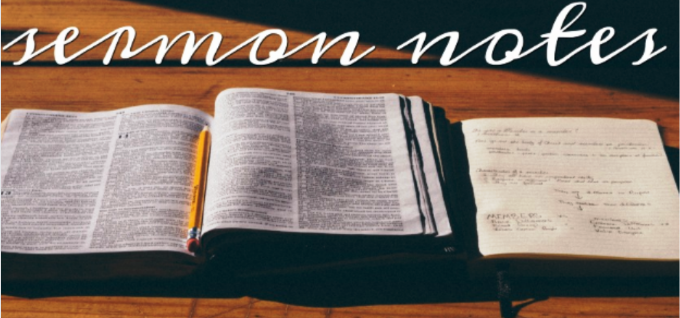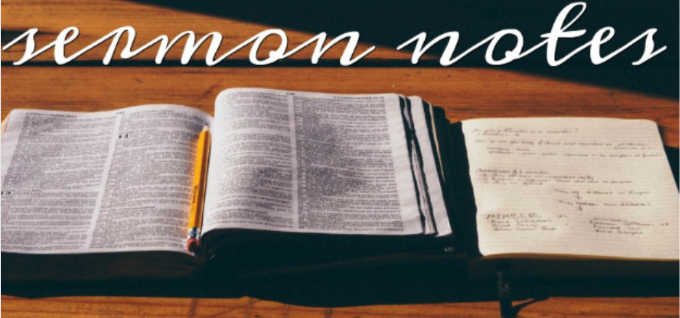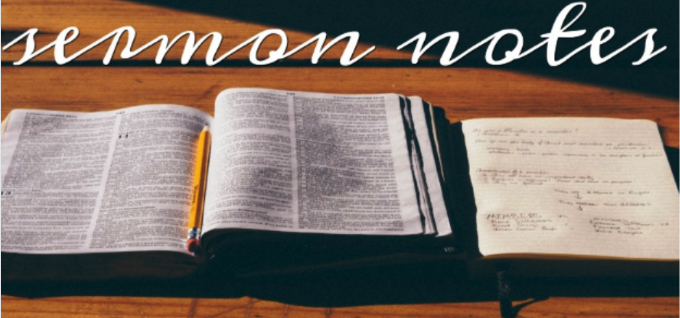
Sermon Notes – January 19, 2025 – “Do What Mom Says”

“Do What Mom Says”
Father Peter Fitzgibbons
January 18 – 19, 2025
Gospel: John 2:1-12
Remember the “E” word I’ve been talking about for the past two weeks? Epiphany. What does “epiphany” mean? Manifestation. Well, we have another epiphany. This particular manifestation was of Jesus’ power and love. He performed the first of His miracles by changing 150 gallons of water into wine. That’s pretty impressive. Did Jesus have to do this? No, but He did it because He loved His mother, and she asked Him to do it. It is interesting to read the part of Scripture about Jesus’ response to His mother’s request, “Woman, how does your concern affect Me?” Now, according to Bishop Sheen, a more accurate translation from the original Greek is, “Woman, who are thee to Me?” Really? That sounds rather rude. Try saying that to your mother or wife and see how it works out for you. You just might end up in intensive care. But this was the beginning of Jesus’ public ministry and His first miracle. It was also the beginning of Mary’s secondary role – not only was she the Mother of Jesus, but she was also to become the Mother of all mankind. She came to this realization at the foot of the Cross in Calvary. The Blessed Mother is a powerful intercessor with her Son. People ask me, “Father, pray for me.” I’d be happy to; it’s my job, and I appreciate the faith you have in me to ask. However, who do you think would get a better hearing? Me? I mean, I’m pretty wonderful, but you know . . . the Blessed Mother might have me beat. Besides, who can refuse their mother anything?
Jesus told the waiters to fill the stone jars with water. Now, did they have a water hose? No. They hauled buckets from the well. The water they drew from the well resulted in 150 gallons of the best wine. That sounds like my family reunions . . . I have a thirsty family. Filling the jars and then lifting them out of the well would have taken a lot of upper-body strength. It also took a fair amount of time. But they did as they were told.
What is the primary way to holiness? Obedience. When Jesus told the waiters to fill the jars with water, can you imagine what was going on in the back of their minds? “Are you kidding me? What is this idiot thinking?” After filling the jars with water, they were told to take them to the head waiter. Even though they didn’t understand why they were taking the water to the head waiter, they did as they were told. What happened after that? A wonderful thing happened . . . the water was changed into wine – in fact, it was the best wine, above and beyond anyone’s expectations. Normally, you wait until people are smashed and then give them the lesser wine. But this was the best wine, and it was saved for last. That’s the fruit of obedience. After the water was turned into wine, it was then the waiters understood, and they saw the result of their obedience. They obeyed even though they didn’t understand. This is what our Lord asks of us; to keep His Commandments and to do what He asks us to do. You may be thinking, “Oh, that’s so old-fashioned.” Look at the results before you criticize. Besides, it’s in Scripture. If we do what our Lord asks us to do, we will receive unbelievable rewards. What kinds of unbelievable rewards? Himself. All the other stuff is a mere representation of His love for us, just as the gifts we give each other are reflections of what is in our hearts.
I’ve been around a long time and have gone to a lot of conferences, probably not as many as I should have because they drive me nuts, and most of them are worthless. I’d rather be on an escape and evasion course because I know there’s an end to it. “Oh! You must buy this book; it’s great! You can increase the spirituality of your parish.” So, I bought the book, and it’s a real fire starter. In the book, this one priest was having a tough day, so he put on his prayer shawl and lit his prayer candle. Hey Father, you’re breaking my heart. Why don’t you get your ”beep” to the church and pray in front of the Blessed Sacrament? I do believe you have a key. Go pray in the presence of our Lord. I find nothing in Scripture about prayer candles. It’s a bunch of dribble. So, save yourself some money on silly books.
It may take a while but God always rewards obedience to His Word. The best spiritual advice given is the last words spoken by the Blessed Mother: “Do whatever He tells you.” Do what mom says.
Father’s Reflections . . . When I was in Wilmington last week, I saw a lady I know who does jewelry work to benefit a battered women’s shelter. This lady asked me, “Hey, Father, would you like a praying hands pen?” I said, “Thank you very much, but no. I already have two praying hands, and they are attached.”
How will you apply this message to your life? _________________________________________
You can read all of Father Fitzgibbons’ sermons by going to AnnunciationCatholicAlbemarle.com, clicking on “Blog” then “Categories” and then “Sermon Notes.” On a cell phone: click on “Blog” and then “Menu.” Scroll to the bottom and click on “Categories.” Sermon Notes are also available on the Church’s Facebook page at OLA.Catholic.Church. Click on “Groups” and then “Sermon Notes.
The Catechism in a Year – Day 287 – The Gratitude of Children

Gratitude is the proper response of children toward their parents. Out of this gratitude comes respect. When we are children at home, this respect includes “true docility and obedience.” Fr. Mike emphasizes respect for parents doesn’t expire when we leave home as adults. Grown children are responsible for caring for and supporting their parents in their old age. As Fr. Mike stresses, this can be the simple but often overlooked phone call to mom or dad. Today’s readings are Catechism paragraphs 2214-2220.
Click on link: https://youtu.be/3RScC-G64J8?si=ieSuZlY5YRXZ0c10
Sermon Notes – May 7, 2023 – Lack of Knowledge is Not the Problem

Lack of Knowledge is Not the Problem
Father Peter Fitzgibbons
May 6 – 7, 2023
Gospel: John 14:1-12
Saint Thomas said, “Lord, we do not know where you are going; How can we know the way?” Jesus told them the way . . . “I am the way, the truth, and the life.” And throughout His ministry, He spelled out exactly what we need to do to get to Heaven. A lack of knowledge is not our problem; otherwise I could give you some books, Liz could give you a quiz, and you’d be done and on your way to Heaven. If a lack of knowledge was the problem, every bishop, every priest, and every cardinal would be a saint. They all have those initials after their names. I have initials after my name, but all that proves is that I can take tests. Taking the knowledge and applying it is the key. “We want to do it, but we lack the will.” No. It’s not a lack of will. We want to decide for God what is best for us. We don’t want to be told, and we don’t want to follow. It’s also not that we lack the strength to do His Will, because God has given us the means to do His Will by prayer and the Sacraments. He offers to share His divine life which gives us the power to do what must be done. We return His love by renouncing ourselves and doing what He asks of us. To be a follower of Christ, we must renounce our very selves and take up our cross. “Who said?” I’m just reading the black part from Scripture. We must renounce our will and do what Christ has asked us to do. He doesn’t ask us to make judgement calls on what is right or wrong. He said, “Do what I ask you to do.” And He was very plain about it. He is very precise in His directions about what to do and what not to do.
What is the biggest impediment to following His Will? Two words . . . our will. “Unless you leave your father and mother you cannot be my disciple.” Now, He was using hyperbole. The Fourth Commandment is to take care of your parents when they cannot care for themselves. “Sell everything you have, give it to the poor, and follow me.” Nope. Not doing that. “You can have only one wife until death takes care of her or you.” Can’t do that either. The biggest impediment is our will. But we have to give up our will in order to do His. Jesus said, “I have come to do the Will of My Father,” and He showed us an example to the point of His suffering and death.
The most difficult vow a priest takes is obedience. When I was home, even then I got phone calls because everything is an emergency that only I can handle. Some day I will take the big “dirt nap” and someone else will have to fill in while someone fills me in up North. Anyway, the call was from the Chancellor who wanted to know when I was going to schedule vicariate meetings because I’m the vicar and apparently a monsignor too. I heard that the visiting priest gave me a promotion. That was awfully nice of him. I feel really good about myself now! So, the Chancellor said that Monsignor Winslow wanted me to schedule the meetings. The Chancellor knew I was away. I’m on vacation; leave me alone!
I told the Chancellor that I really couldn’t do it because I was on vacation. Well, he wouldn’t let it go, and I really wanted to tell him some things that would not have been politically beneficial to me and disobedient. I knew better. I would have been out of here in a second. I’ve got a good gig going here, so I said, “Yes, Monsignor. I will do it.” And that’s the hardest part. It wasn’t the task itself; that was just a phone call and a few notes. No problem. It’s the renunciation of the will . . . to imitate Christ and do the Will of the Father.
There are two parts of the will: 1) objective by following a command by those we owe obedience to and 2) subjective ascent. Subjective ascent is the hardest of them all. If you say, “Yes Monsignor. Yes Monsignor” but in your mind you are thinking, “Take that, Monsignor.” Don’t let that bad voice come out, otherwise it might not be pleasant. That’s the hardest part of turning your will over to God. When Adam and Eve walked with God and talked with God as the old hymn goes, they had one thing to do, and they screwed it up. And here we are. It is hard to restrain our will both exteriorly by objective obedience and interiorly by interior sin. And that’s what we have to work on. That’s why we pray and do Penance. “But, I’m not getting anything out of prayer.” You’re not getting anything out of prayer? “No.” Great, you’re not supposed to. Prayer is a gift for the other. “I don’t like going to hospitals. There are sick people there.” Yeah, I know. But what the heck, you’re an outpatient and you get to leave. It’s not about you. I’d like it to be all about me. But it’s not.
You know the way to salvation. Christ said, “I am the way, the truth, and the life.” We imitate Christ which is obedience to the Father by obeying the Father’s Will. We obey His Will by keeping His Commandments. Exteriorly, it is very difficult. Interiorly is the most difficult and that’s what we work on daily, even hourly and minute by minute. Renunciation of our will is the key to salvation. It’s not the lack of knowledge.
Father’s Reflections . . .
Yes, I’m back from vacation. It was an interesting flight. I overheard a member of the flight crew talking about her plans to kick her boyfriend to the curb. An in-flight show . . . I like it! I’ll give you three stories about my vacation. On the advice of counsel, I can only tell you three. While on vacation, I did some metal detecting. I froze my behind out there, but I did find a small key. I was having fun even though I felt like a frozen popsicle when I got back to the car. I’ve lost my New England blood. The other two stories really made me feel my age. My cousin’s brother gave her $60 to buy lunch for her, my aunt, and me. We only spent $30. I must be losing it! The third story left me shocked and stunned. I graduated from Providence College in 1975. The daughter of one of my classmates prepared dinner for a group of us. We used to call ourselves “The Table.” I took one look at my former classmates and said, “My God! I didn’t bring my oils, so I can’t give you all Last Rites! You guys are old!”
How will you apply this message to your life? ________________________________________
You can read all of Father Fitzgibbons’ sermons by going to annunciationcatholicalbemarle.com and clicking on “Blog” then “Categories” then “Sermon Notes.” On a cell phone: click on “Blog” then “Menu” and then “Categories.” Sermon Notes are also available on the church Facebook page at facebook.com/ola.catholic.church. Click on “Groups” and then “Sermon Notes.”
The Catechism in a Year – Day 127 – Consecrated Life

There are many ways that God calls people to lives of holiness. Just as he calls lay people to holiness, he also calls individuals to consecrated life, including hermits, consecrated virgins, widows, and religious. In a very intentional, specific, and lifelong way, those in consecrated life commit themselves to the evangelical counsels of poverty, chastity, and obedience. Father Mike helps us see how all the different kinds of consecrated life are a great gift to the Church and the world. Despite the many ways the Lord calls his children to holiness, the goal of each human life remains the same – intimacy with Christ. Today’s readings are Catechism paragraphs 914-924.
Click on link to play video: https://youtu.be/nFPVnOoBEEw
The Catechism in a Year – Day 80 – Summary of the Mysteries of Christ’s Life

We have arrived at another nugget day, or In Brief day, for the paragraphs on the mysteries of Christ’s life. On today’s “mystery nugget” day, Fr. Mike recounts the significance of Christ’s obedience to the Father and our own obedience to God’s will. He also emphasizes the importance of reflecting on the mysteries of Christ’s life by reading and meditating on the Gospels and praying the Rosary. Today’s readings from the Catechism are paragraphs 561-570.
The Catechism in a Year – Day 75 – Jesus’ Infancy and Hidden Life

Fr. Mike explores the mystery of Jesus’ infancy and hidden life. We first take a look at Jesus’ Baptism, circumcision, and the Epiphany. Fr. Mike discusses that Jesus’ circumcision shows us that salvation comes from the Jews. The Epiphany shows us that salvation does not stop there, it extends to all of us. Later, we examine Jesus’ hidden life. Fr. Mike emphasizes the importance of Jesus’ obedience to not just his Father in Heaven, but to his earthly father and mother as well, and how we can imitate that obedience. Today’s readings are Catechism paragraphs 527-534.
Click on the link to play video: https://youtu.be/A3pyAWR-dNc
Sermon Notes – December 18, 2022 – “The Silent Saint”

“The Silent Saint”
Father Peter Fitzgibbons
December 17 – 18, 2022
Gospel: Matthew 1:18-24
18 This is how Jesus Christ came to be born. His mother Mary was betrothed to Joseph; but before they came to live together she was found to be with child through the Holy Spirit. 19 Her husband Joseph, being an upright man and wanting to spare her disgrace, decided to divorce her informally. 20 He had made up his mind to do this when suddenly the angel of the Lord appeared to him in a dream and said, ‘Joseph son of David, do not be afraid to take Mary home as your wife, because she has conceived what is in her by the Holy Spirit. 21 She will give birth to a Son and you must name Him Jesus, because He is the one who is to save His people from their sins.’ 22 Now all this took place to fulfil what the Lord had spoken through the prophet: 23 Look! the virgin is with child and will give birth to a Son whom they will call Immanuel, a name which means ‘God-is-with-us’. 24 When Joseph woke up he did what the angel of the Lord had told him to do: he took his wife to his home.
In the Christmas narratives about the birth of our Lord, one person gets short scripted, spiritually speaking. However, it doesn’t bother him because he’s in Heaven in the presence of our good Lord forever. He has everything, so he doesn’t take it personally although some of us would. Who is he? Saint Joseph the Silent who never uttered a word in scripture. According to some traditions, Saint Joseph was without sin but that is pious tradition and not de fide. The Church is silent on that. But, if you look at the staff he carries, it always has a lily, and the lily is a sign of purity.
In ancient Israel, when you were betrothed, you were considered married even before you lived together. You have to read the Gospel in the context of the times because that is when it was written. Even though events in the Gospel happened over 2,000 years ago, we tend to interpret the events and words as if they were a part of our culture today. And that’s not true. An angel of the Lord came to Joseph in a dream and said, “Have no fear about taking Mary as your wife.” It is the beginning and the continuing of our redemption because he said “yes” to Almighty God in a dream. Did he understand it? No – but he did it. The obedience of Saint Joseph is a model for what our response should be. What an example of faith.
In other dreams, he was told to go to Egypt and to come back from Egypt. He did a lot of walking. He had to walk with Mary who rode on a mule or something like it all the way to Bethlehem. It was shoe leather express all the way. When he couldn’t find a room for her, he had to put her in a stable. You may say, “Well, he was poor.” Scripture doesn’t say that. Quite to the contrary. When the Wise Men came, they found the family in a house. Joseph was a skilled tradesman. In those days, carpenters were highly skilled tradesmen. So, he was probably very secure in his finances. Scripture doesn’t mention that – only that he was a carpenter. They figured we would know all that. What a great act of faith by Joseph. .to be told that Mary is with child by God and to take her as his wife. How can that be possible? Well, in a few days, we will also wonder how God can become man. He can because He is God.
Obedience has two forms. There is the objective part where you do things out of fear. Nobody drives 35 mph in town just because it’s the right thing to do. We do it because the Albemarle Police Department may be close by and watching us. I always see the Highway Patrol and sheriff deputies at the VFW sitting out of view in Richfield. They hide really well. I saw one sitting at the Lutheran Church just over the crest of the hill. Perfect! And if law enforcement catches you speeding, they will say, “Come here and make a donation to the State.” That is objective obedience. I’ve told you before that the toughest part of obedience is mental interior obedience. To obey for love of the law giver who wants our service. It was designed only for our good, and that’s the hard part because our original sin cries, “I know more than You.”
Joseph never spoke a word in Scripture, but he said “yes” by his actions. By his actions, he imitated the Blessed Mother’s fiat, “Be it done to me according to thy will.” What a humble submission of will. What a humble submission of intellect. In a few days, we will mark the fruits of Joseph’s cooperation. What are the fruits of his cooperation? He was the first human being to hold God in his hands.
How will you apply this message to your life? _________________________________________
You can read all of Father Fitzgibbons’ sermons by going to annunciationcatholicalbemarle.com and clicking on “Blog” then “Categories” then “Sermon Notes.” On a cell phone: click on “Blog” then “Menu” and then “Categories”
Morning Offering – Where There is No God, There is No Paradise

“Where there is no obedience there is no virtue, where there is no virtue there is no good, where there is no good there is no love, where there is no love, there is no God, and where there is no God there is no Paradise.”
— St. Padre Pio of Pietrelcina
//Catholic Company//
Meditation of the Day – The More We Dig, The More We Shall Find

“Concerning obedience as a sign of authenticity, St. Theresa is eloquent: ‘Believe me, there is no better way of acquiring this treasure [of loving fire sent from heaven] than to dig and toil in order to get it from this mine of obedience. The more we dig, the more we shall find; and the more we submit to men, and have no other will than that of our superiors, the more completely we shall become masters of our wills and bring them into conformity with the will of God.'”— Fr. Thomas Dubay, p. 239
//The Catholic Company//
